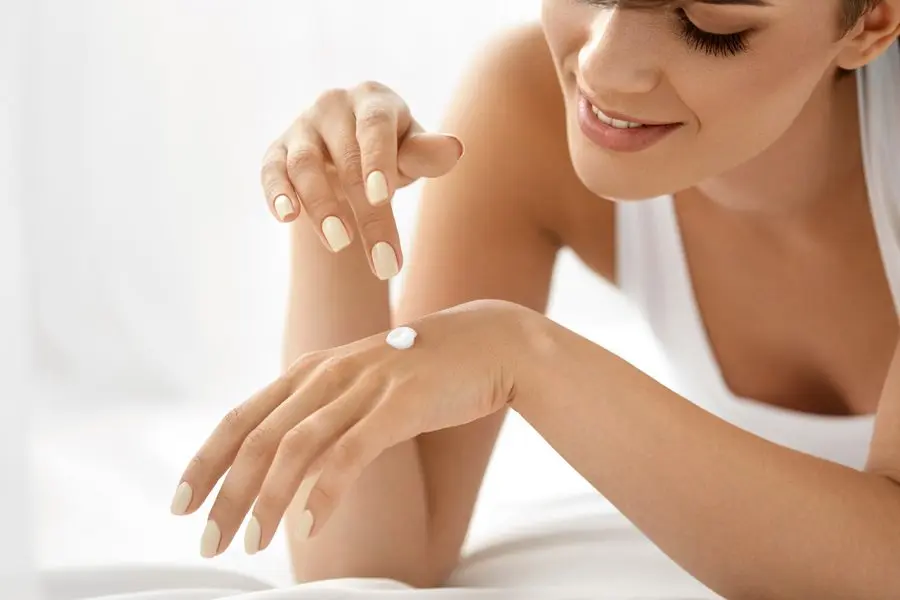
Sunscreen
Contents:
Sunscreen perhaps the most important product you can put on your skin. This reduces the risk of developing skin cancer and protects the skin from other harmful effects UVA and UVB rays like sunburn. It also helps prevent symptoms premature aging like dark spots, fine lines and wrinkles. That's why, no matter your age, skin tone, or geographic location, sunscreen should be part of your daily routine.
Types of sunscreen
There are two main types of sunscreen: physical and chemical. Physical sunscreen, also known as mineral sunscreen, works by forming a protective layer on the skin that blocks UV rays. Common physical blockers found in mineral sunscreens are zinc oxide and titanium dioxide. Chemical sunscreens contain active ingredients such as avobenzone and oxybenzone that absorb UV radiation.
Both are effective at protecting the skin from the sun, but there are a few differences between the two. The texture of physical sunscreen is often thicker, thicker, and more opaque than chemical sunscreens, and it can leave a white cast that is especially noticeable on darker skin. However, chemical sunscreens can irritate sensitive skin.
What does SPF mean?
SPF stands for sun protection factor and tells you how long your skin can be in direct sunlight without turning red or burning when using a particular sunscreen. For example, if you wear SPF 30 sunscreen, your skin will burn 30 times longer than if you didn't use it at all. This measurement is specifically based on UVB rays, a type of sunlight that can burn the skin. It is important to know that the sun also emits UVA rays, which can accelerate skin aging and skin cancer. To protect your skin from UVA and UVB rays, look for a broad spectrum formula (meaning it fights UVA and UVB rays) with an SPF of 30 or higher.
When and how to apply sunscreen
Sunscreen should be applied every single day, even when it's overcast or raining, or when you spend most of the day indoors. This is because UV rays can penetrate clouds and windows.
To get the most out of sunscreen, it is recommended to apply a full ounce (equivalent to a shot glass) on the body and about a tablespoon on the face. Don't forget areas like the feet, neck, ears, and even the scalp if they aren't protected from the sun.
Reapply every two hours outdoors or more frequently if you have been swimming or sweating.
How to find the right sunscreen for you
If you have acne-prone skin:
Both physical and chemical sunscreens can clog pores if they contain comedogenic ingredients like certain oils. To avoid sunscreen-related acne, choose a formula labeled non-comedogenic. We like SkinCeuticals Sheer Physical UV Defense SPF 50that feels weightless and helps mattify the skin. For more guidance, check out our guide to best sunscreen for acne prone skin.
If you have dry skin:
Sunscreen is not known to dry out the skin, but there are certain formulas that contain moisturizing ingredients, such as hyaluronic acid, that can be especially helpful for dry skin. Try La Roche-Posay Anthelios Mineral SPF Hyaluronic Acid Moisture Cream.
If you have mature skin:
Because mature skin tends to be more delicate, dry, and prone to fine lines and wrinkles, finding a chemical or physical sunscreen that not only has a high SPF but is also hydrating and rich in antioxidants should be a top priority. Try Sunscreen Vichy LiftActiv Peptide-C SPF 30, which contains a blend of phytopeptides, vitamin C and mineral water to hydrate and improve the appearance of wrinkles and dark spots.
If you want to avoid the white tint:
Tint formulas contain tint-adjusting pigments that help offset the white film that sunscreens can leave. Favorite editor is CeraVe Sheer Tint Moisturizing Sunscreen SPF 30. For more information on how to minimize white cast, check out these expert tips..
If you want to use a sunscreen that can be used as a primer:
Thick sunscreen formulas can sometimes cause makeup to clump when applied on top, but there are plenty of options that provide sun protection and a smooth base for foundation. One of these options is Lancôme UV Expert Aquagel Sunscreen. It has a translucent creamy gel texture that absorbs quickly.
Leave a Reply